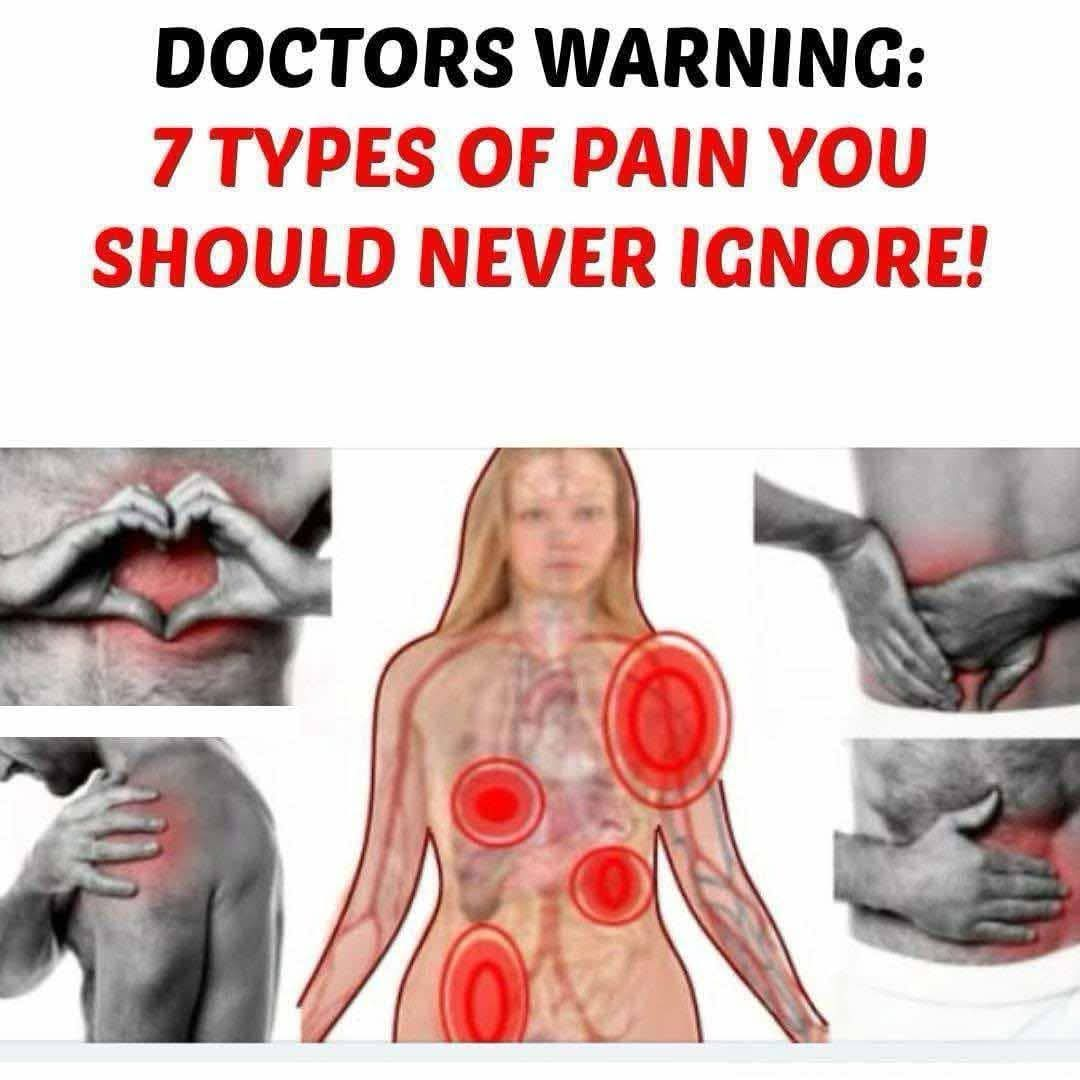7 Kinds of Pain That Shouldn’t Be Ignored

Pain is the body’s way of telling us something isn’t right. While some pain is temporary and harmless, others can signal serious health problems that require immediate attention. Recognizing which pains to take seriously can save your life or prevent long-term damage.
Here are 7 types of pain you should never ignore:
1. Chest Pain
Chest pain or tightness can be a warning sign of a heart attack, especially if it comes with shortness of breath, sweating, nausea, or pain radiating to the arm or jaw. If you experience sudden, severe chest pain, call emergency services immediately.
2. Severe Abdominal Pain
Sudden, intense stomach pain could mean appendicitis, gallstones, pancreatitis, or other serious conditions. If the pain is sharp, persistent, or accompanied by fever, vomiting, or swelling, seek medical help immediately.
3. Sudden, Severe Headache
A sudden, severe headache like a thunderclap or the worst headache of your life may indicate a brain hemorrhage, stroke, or aneurysm. Don’t dismiss it—get emergency care right away.
4. Pain with Weakness or Numbness
If pain comes with weakness, numbness, or difficulty moving a limb, it could be a sign of a stroke or nerve damage. This needs urgent evaluation.
5. Pain with Swelling and Redness
Pain accompanied by swelling, redness, and warmth in a limb can indicate infection or deep vein thrombosis (blood clot). Immediate medical attention is necessary to prevent complications.
6. Persistent Back Pain with Leg Pain
Back pain that radiates down the leg or causes numbness and weakness might be due to a herniated disc or spinal stenosis. If untreated, it can lead to permanent nerve damage.
7. Pain after an Injury with Deformity
If pain follows an injury and the limb or joint looks deformed, swollen, or you can’t move it, it may be a fracture or dislocation. Immediate medical care is required.
When to See a Doctor
If you experience any of the above pains, especially if sudden, severe, or accompanied by other symptoms like dizziness, shortness of breath, fever, or weakness, don’t wait. Early diagnosis and treatment can be life-saving.
Final Advice
Never ignore your body’s signals. Pain is a crucial warning sign. When in doubt, always seek medical advice — it’s better to be safe than sorry.
FAQs
Q: Can mild chest pain be harmless?
Sometimes, but it’s better to get it checked to rule out serious heart problems.
Q: When should I go to the ER for a headache?
If it’s sudden, severe, or accompanied by confusion, vision changes, or weakness.






